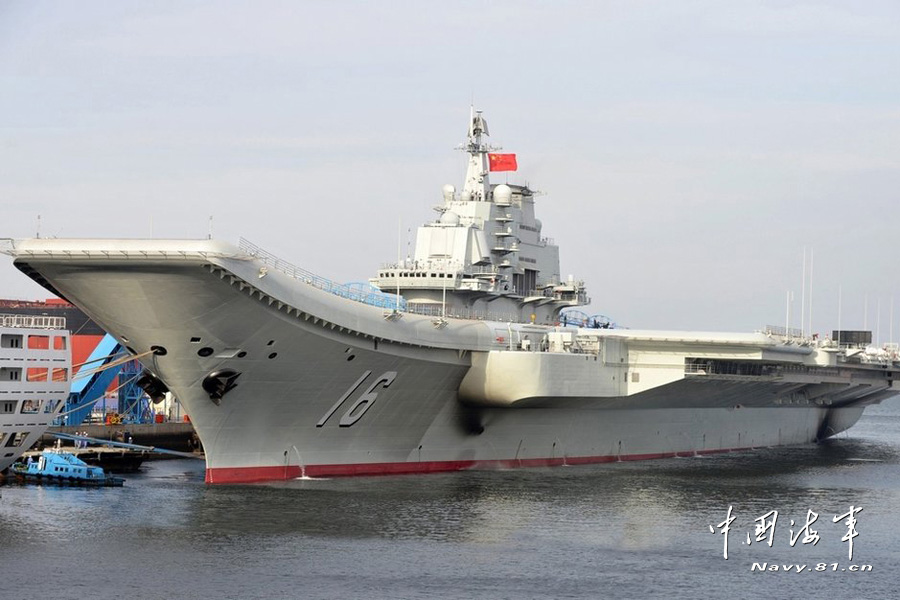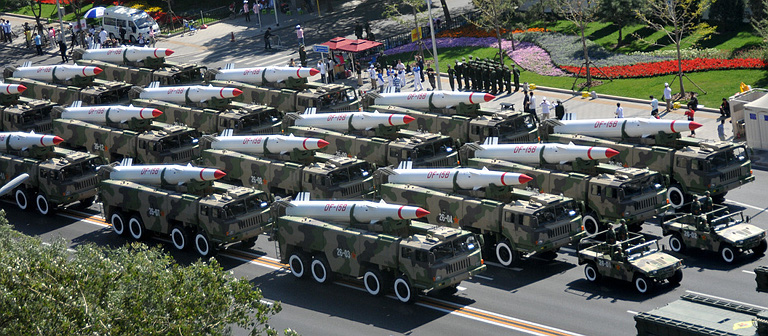The buildup of Chinese naval power in the South China Sea and recent groundbreaking on two island lighthouses are elevating tensions between the U.S. and China over the disputed region.
The release of a new white paper, "China’s Military Strategy," which indicates China plans to broaden its influence over the South China Sea, noting that the People's Liberation Army (PLA) will be adding "open seas protection" to "offshore waters defense" in its naval mission, is straining nerves in the U.S., where Secretary of Defense Ashton Carter has instructed his staff to come up with ways in which the United States can confront China's actions,
The paper was released just after an editorial in the state-run Chinese tabloid Global Times said conflict between China and the U.S. will be unavoidable if Washington doesn’t stop harassing Beijing for building islands and military facilities in disputed parts of the South China Sea.
"We do not want a military conflict with the United States, but if it were to come we have to accept it," the paper said.
In a briefing, PLA senior Col. Wang Jin commented, "The maritime battlefield has been broadened, and China’s navy needs to react to protect its rights globally," Bloomberg noted.
The white paper stated, "Some external countries are also busy meddling in South China Sea affairs; a tiny few maintain a constant close-in air and sea surveillance and reconnaissance against China.
"It is thus a long-standing task for China to safeguard its maritime rights and interests," Bloomberg reported.
China has been expanding its reach in the South China Sea with land reclamation projects in the Spratly Islands, and it has overlapping claims with Vietnam, the Philippines, Vietnam, Malaysia, Taiwan, and Brunei,
Newsmax reports, in an article citing some material from Reuters.
"We will not attack unless we are attacked, but we will surely counterattack if attacked," the paper said,
The Wall Street Journal reported.The U.S. has launched surveillance flights of the disputed island area, the Journal notes, and Japan, the U.S., and Australia will hold the joint Talisman Sabre exercise near Australia in July,
Reuters notes. South China Sea nations are beefing up their defense expenditures, especially on their navies,
the Japan Times notes. Jane's Defence Weekly reported that 10 Southeast Asian nations are expected to increase defense spending from $42 billion per year to $52 billion by 2020, the Japan Times notes, specifically to encounter perceived future Chinese maritime threats.
Tim Huxley, director of the International Institute of Strategic Studies in Asia, told the Japan Times, "As their (Southeast Asian) capabilities in the maritime space expand, it means the range and lethality of strike forces will also increase. If there is a confrontation and it escalates, there is a potential for a more lethal conflict."
China's white paper "reflects China’s rising reliance on the oceans for its economic prosperity," Zhang Baohui, director of the Center for Asian Pacific Studies at Lingnan University, Hong Kong, told Bloomberg News.
"However, it has also intensified the security dilemma with other countries, such as the U.S., Japan, and India, who distrust China’s maritime agenda."
The white paper indicated that China intends to add offensive air operations to its military plans, as well as to further develop its outer space, cyberspace, and nuclear capabilities, Bloomberg News reported.
`
`
`
`
`
![]()





 `
`


You need to be a member of REAL CONSERVATIVES to add comments!
Join REAL CONSERVATIVES